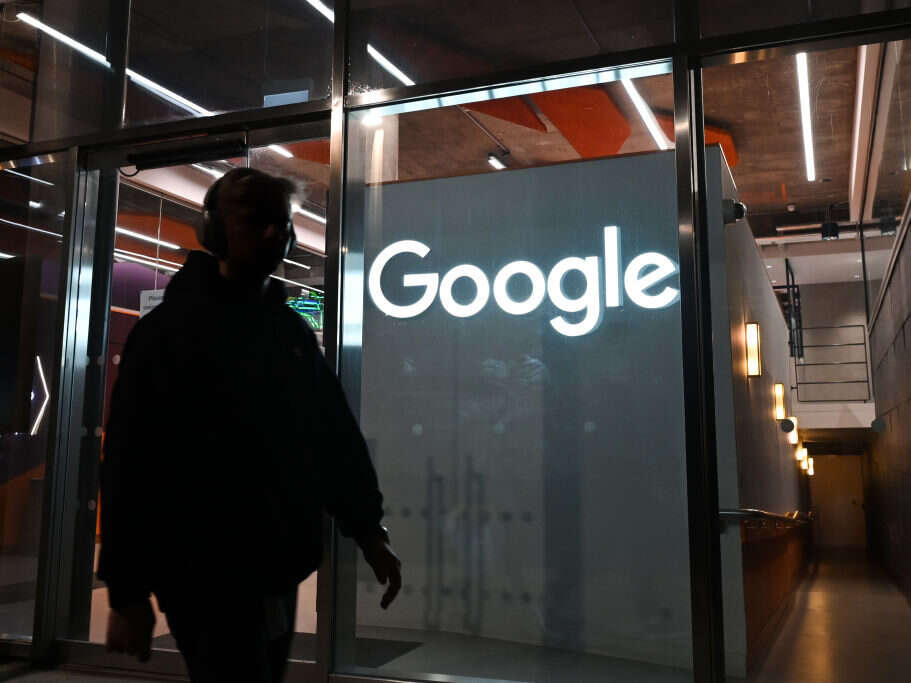
A second collective lawsuit seeking to claim damages from Google on behalf of UK online publishers has launched – apparently in direct competition with the first.
The new lawsuit, filed on Thursday by former Guardian technology editor Charles Arthur and law firm Hausfeld, claims publishers are collectively entitled to compensation of up to £3.4bn.
Both claims want to be opt-out – meaning relevant publishers will be automatically represented in the suit.
But first the Competition Appeal Tribunal will need to choose a class representative and certify the suit as opt-out.
The first claim was filed in November by law firms Geradin Partners and Humphries Kerstetter and has former Ofcom director Claudio Pollack as the class representative.
That claim alleges that Google’s dominance and abuse of each part of the online ad market diminished digital ad revenue for UK publishers since 2014 by up to 40%. It is seeking up to £13.6bn in damages from the tech giant.
The details of the Humphries Kerstetter claim are not yet public, but a partner there, Toby Starr, told Press Gazette earlier in March that a certification hearing – at which the CAT decided whether the claim could proceed as opt-out – would likely happen “towards the end of this year”.
“After that, there will be a process which is more familiar to most litigation lawyers: going through exchanges of documents, exchanges of witness statements and expert reports. And then a trial and those steps are expected to take another two to three years after the certification hearing.”
[Read more: The US and UK Google ad-tech litigation which could win billions for publishers]
Some details of Arthur and Hausfeld’s new claim have been published, and make similar allegations to those made by the US Department of Justice in its lawsuit against Google filed in January.
The claimants in both those cases argue that Google has engaged in anti-competitive behaviour through its control of each part of the market for display advertising. The trillion-dollar company provides technology to both advertisers and publishers (through products such as Google Adsense and Doubleclick for Publishers) and runs AdX, an ad exchange that mediates advertising auctions.
In a briefing note Arthur wrote that “this is not necessarily an issue provided Google does not conduct itself in a way which abuses its dominant position and prevents its competitors from competing with it on the merits. However, this is exactly what Google has done”.
The Department of Justice’s suit similarly alleges that Google actively used its dominant market position to acquire or edge out competition or attempts to make the market dynamic more favourable to publishers.
Arthur wrote that “there is a very real danger that the kind of innovation which made it possible for Google itself to grow will be lost as the current system stifles new talent, new entrepreneurs and new ways of working” but also that “we can’t be certain what publishers might have done with extra revenues from advertising”.
The French Competition Authority has already levied a €220m fine against Google because it deprived publishers “of the ability to benefit from undistorted competition between ad exchanges”.
The briefing note also addressed the Pollack and Humphries Kerstetter claim, saying that because few details are yet available about the earlier suit “it is not possible to comment at this time” on how far they overlap. The second claim was in an advanced stage of preparation when the first was announced, so they decided to continue putting forward their own plan in the interests of publishers – especially as they still do not know whether they cover all the same issues.
However unless Arthur and Pollack decide to join their claims together the CAT will be required to decide who the class representative will be. Either one claim could be chosen to go forward, or the pair could decide to collaborate.
Arthur wrote that he had decided to apply to be the representative because “as a journalist, my focus was always to highlight practices that were unjust, needed fixing or were just plain wrong…
“Publishers have suffered losses running into the billions of pounds – this is what my claim is seeking compensation for, in addition to getting Google implement behavioural changes in the future.”
Both cases are looking to represent UK-based publishers who have sold ad space online since 1 January 2014. Both cases are also already funded, so publishers do not need to pay costs toward the litigation and won’t bear any financial risk.
And because they seek to be opt-out, publishers do not need to do anything at this stage. Any publishers interested in following developments in either case, however, can follow the first claim at adtechclaim.co.uk and the second at googleadclaim.co.uk.
Email pged@pressgazette.co.uk to point out mistakes, provide story tips or send in a letter for publication on our "Letters Page" blog
